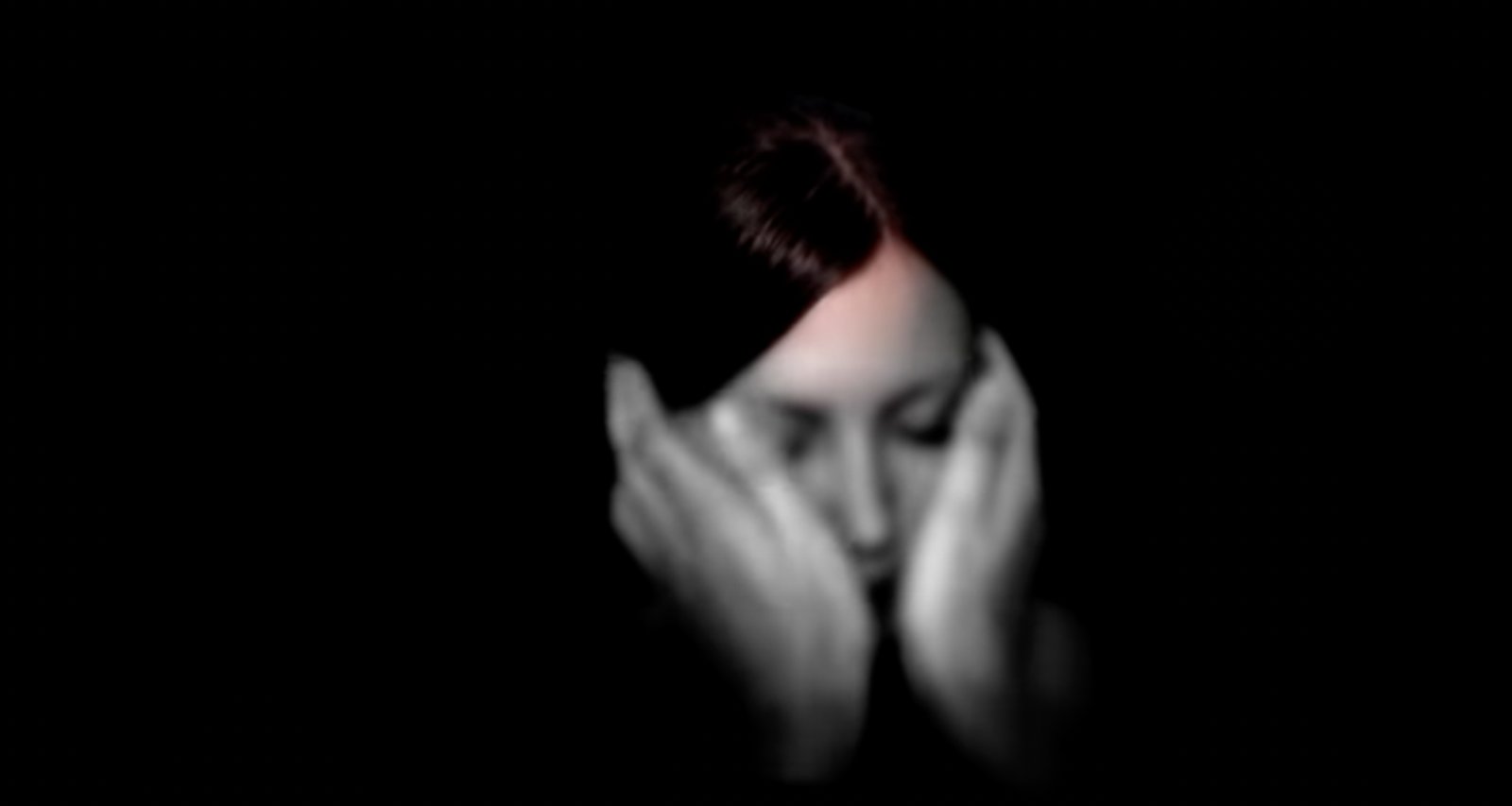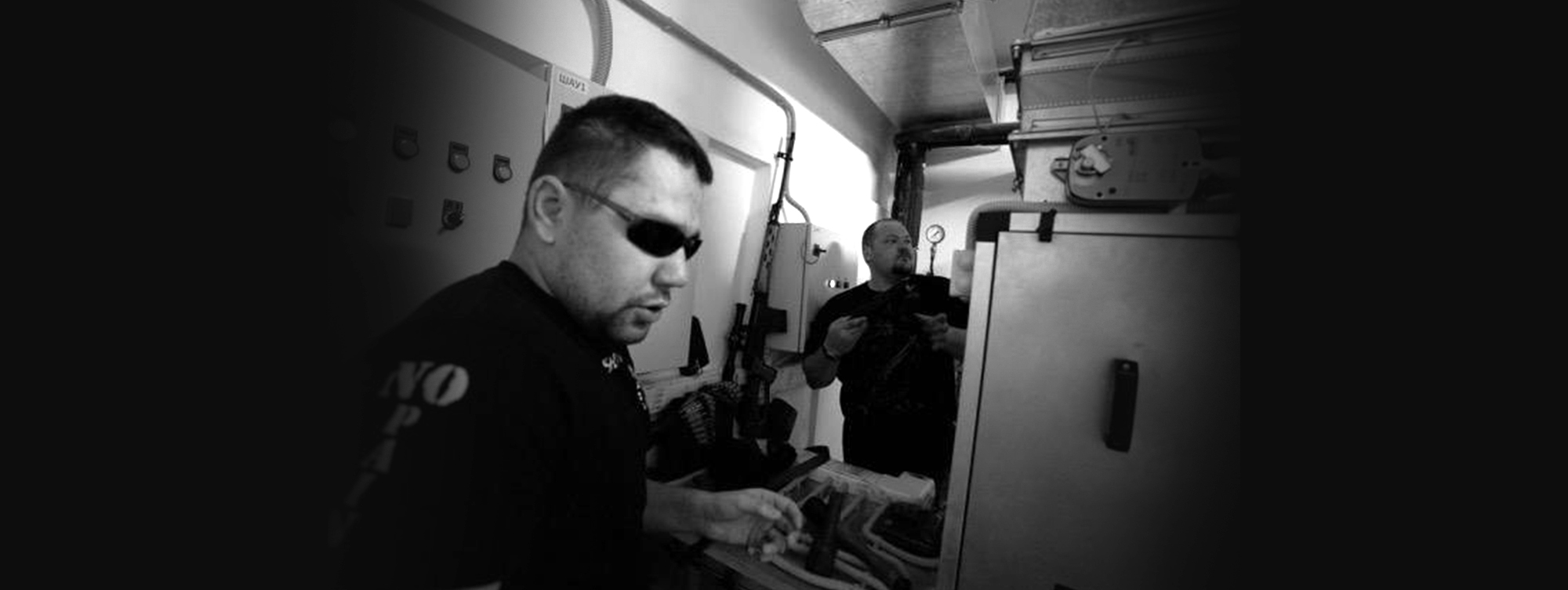Alexander Montov was, perhaps, the only sightless film director in Russia. Two years ago, at the age of forty, he passed away, but his films are still there. He began making films after he had lost his eyesight, although his name is not widely known among cinema professionals.
Among other works, Alexander Montov directed such films as Other People (2010) and The Day (2012). The latter was presented at XVI International Human Rights Film Festival “Stalker” (Moscow).
Yulia Pugachyova, Special View portal author, tells about the director’s life and legacy.
Darkness As Challenge
Alexander Montov was born in Ufa in 1980, and two years later his family moved to Surgut. This was the city where the future film director spent his childhood and adolescence. He was into weight-lifting, and he liked making videos and editing them on PC. Having completed his military service, he moved to Moscow where he worked in defense and law enforcement agencies.
At the age of 27 through tragic circumstances (a trauma and a medical error) Alexander practically lost his eyesight. “I kept waking up at night and staring at the damned light bulb — was my eyesight getting better or worse? What is more, any type of physical activity was forbidden to me: no lifting heavy items, no sneezing, no coughing, no anything. They said that should intraocular pressure rise abruptly at some point, there would be no hope for rehabilitation”, as Men’s Health Russia quoted him (No. 5, 2017).
Thus Alexander was treading lightly for six months, but then couldn’t stand it any longer. He went to the gym, took the barbell in his hands — and lost his eyesight for good. But Alexander Montov didn’t get depressed or feel that his life had ended at that moment.
“When I understood that the darkness would stay with me forever, I smoked a cigarette and thought: ‘Yes, these are my new life circumstances, and now I have to act in them. Another challenge that I must accept’,” thus Mr. Montov explained his condition.
As he aptly said later in his Other People, “All the things that I used to perceive as hobbies were now called rehabilitation”. Alexander was facing the choice: whether to go to a rehab center for visually disabled people and get basic professional training, or continue doing what he used to like. He chose the latter: he took to power lifting and rifle shooting, became a coach and then went back to creating videos.
At the same period Alexander got a degree in psychology at Surgut State Teachers University. He later used this knowledge in his films, in monologs describing what sightless people feel.
More Than Cinema

Audio description: a colored photo. Close up of a video camera. It points at a fair-haired woman in a black dress sitting in an armchair in front of bookshelves.
Films directed by Alexander Montov are always more than just searching for artistic solutions. Each of his works is a statement, each one is a life principle.
Alexander Montov’s characters repeatedly said: “Your actions must make people respect you for your blindness, never pity you”. This phrase reflects everything the director wished to impart.
Through his films he tells us that we should never give up, that one may continue doing what one likes despite the circumstances, that one shouldn’t cringe in inner shame if one drops something or walks into a chair in a cafe. One should live and enjoy one’s life, fill every day with bright emotions. And you must always love someone and never be afraid to enter a relationship. That is why romantic plot lines in Montov’s most famous works, Other People and The Day, are gentle, sincere and moving, they play an important role in his stories.

Audio description: a colored photo. Man’s hands are gently touching the face of a young dark-haired woman in twilight.
There is an eloquent scene in the Other People film: grey mist, stretched out hands are trying to find something by touch, but suddenly a young woman’s face appears under the moving fingers. The tactile actions have caused a person’s image to appear, and the off-screen voice makes an important note: we can never remember our loved ones’ facial features accurately, the image is always blurred. That is why there is no difference in perception by memory and by touch. The only difference is that without eyesight one forms the image of the world and its details based upon one’s hearing, tactile and spacial sense.
Having lost his eyesight, Alexander began listening more carefully to what was going on around him and perfect his motor memory. In time he started to discern the shapes and sizes of objects surrounding him and even feel the obstacles at some distance in front of him. He felt as if the air was getting denser as he was walking forward, felt its resistance, which enabled him to walk around cars and other objects. These skills helped Alexander in his coaching, in creating films and in his everyday life.
“My own body in unusual conditions is of much interest to me. Gradually I adapted to living blind, for example now, while I’m training an athlete, putting my hand on his back is enough for me to feel the way his muscles are tensed, and that way I can understand whether he is doing the exercise correctly. Also, I began hearing the world around me. I can hear the barbell, and by the way it is shaking I understand that the athlete’s feet are in a wrong position. And sometimes when I’m washing dishes at home I hear that a cup is falling from the dish rack and I catch it in the air,” he said.
Alexander formed strict and athletic self-discipline: not one day without a workout, no self-pity, and constant will to achieve. It was ultimately important for him to go on living and continue with his work.
During one of the interviews he spoke about the way he was nervous before meeting sightless and visually challenged children from an orphanage. Alexander understood that telling them about how one had to be courageous and face all the challenges was not just pointless but wrong. He didn’t know how to start the conversation, so he took his pet ferret Motka to the interview. When the kids learned that this animal had bad eyesight by nature, but lived happily with Alexander, the conversation became simple and warm, and after it everyone acquired something new and real in their hearts.
The Director’s Method
After losing his eyesight, Alexander Montov returned to making films for several reasons: he wanted to fulfill himself in the area he had been fond of for a long time, and do something that perhaps no blind person had done before him. His first work was a clip about bikers, and the next one was an amateur video about Motka. Watching the animal run around, seeing its master shoo it from the table, wash it, feed it and play with it, the viewer understands that the two feel each other’s movements.
The camera is steadily following Motka, as if guided by the sounds the ferret is making. This work is very lively and dynamic, its rhythm fully expresses the personality of the pet and the care of its master.
Even in this amateur video, Montov’s director manner is clearly seen, because each shot is very accurately done. In other words, Alexander always knew precisely what he wanted the screen to show, to the tiny details and animated inserts.
This thought is supported by Atrur Smolyaninov, an actor who played one of the roles in The Day: “Everything was going on the usual way, the difference was just that Alexander told everyone what he wanted to see in the next scene the way he imagined it. And we, in the process of shooting and afterwards, were describing to him to what extent his perception coincided with the result”.
Smolyaninov pointed out that Montov specified everything, “including the shape of the clouds and the color of water”. “Even a sighted person who is trying to make art not always has such a clear idea of what he or she wants to achieve. So blindness does not halt one’s imagination or vision, which are the crucial tools of creativity,” he said in an interview to Men’s Health Russia.
By the way, Montov chose actors for his films based on empathy, intonations and manner of moving. “For you it may be an ordinary conversation, but for me it is a whole spectrum of delicate modulations and nuances of the voice. Judging by the way a person is behaving, laughing, communicating, raising from a couch, walking around a room, I get a pretty detailed picture. And I’ve never got disappointed,” he shared once with Argumenty I Fakty newspaper.
Valeriy Sokur, Montov’s camera man said in one of his interviews: “He remembers absolutely everything: what was where in shot, what color each object was. Even if we were shooting the same scene on different days, weeks or months, we always arranged everything as he remembered it, and he was always correct”.
As for preparing for the shooting and cutting, Alexander designed the scenes and camera angles, the length and depth of the set-up in fine detail. And the way his helpers compared the image in the director’s head with what they were actually seeing, created an atmosphere of utmost trust at the production set.
In his films, Alexander Montov did not just bring his ideas to life, nor just enact plotlines from books or fill his works with his favorite tracks. His stories are permeated with the psychology of a person’s action: the way one admits one’s blindness to people and to oneself, the way one lives without constantly feeling one’s limitations, the way one falls in love and is loved in return. Because a man can feel that the girl he likes is watching him even without seeing her.
As the director shared, he had said everything he had wanted about the life of the blind people in his short movie Other People and in his full-length picture The Day. He was planning to create psychological thrillers, but these plans were not to come true. But his works remain with us even after his demise, and they prove that despite everything you must follow your dream.


